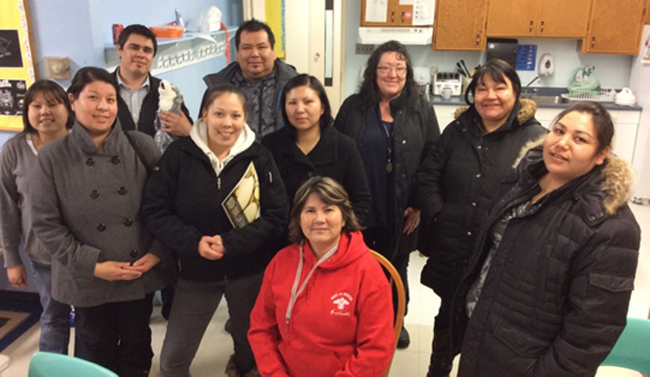Supporting children to achieve their dreams

WIKWEMIKONG -Special education resource teachers and education assistants gathered at Wasse-Abin Pontiac School in Wikwemikong Jan 28. to learn classroom interventions in support of children diagnosed or suspected of having Fetal Alcohol Spectrum Disorder. The majority of individuals affected by prenatal alcohol exposure have no visible signs and often struggle through school without a proper diagnosis.
Participants learned to shift their thinking from focusing on stopping a child’s behaviour to understanding why they are behaving in a certain way and preventing problems from occurring in the first place. This paradigm shift helps educators understand a child is unable to complete a task instead of unwilling. It also emphasizes the importance of reducing expectations for the child and most importantly, ‘trying differently not harder’.
Laura Liberty, FASD worker for Lake Huron Region at Anishinabek Nation, facilitated the session referring to Diane Malbin’s “Trying Differently Not Harder” resource.
Malbin notes that FASD is a relatively new field and often poorly misunderstood. Proven standard methods have been deemed ineffective for individuals living with FASD. Unfortunately many parents and professionals lack the necessary training to apply effective interventions.
Malbin suggests further paradigm shifts from using behaviour modification to showing by example and integrating visual cues to teach and re-teach individuals often affected by poor memory.
Another useful shift in thinking-change the environment instead of trying to change the individual. It is very difficult to change behaviour that is rooted in brain damage so opting to change the environment is highly recommended. Simple changes such as dimming fluorescent lighting, reducing the amount of clutter in a room, or written text in a classroom are a good starting point.
If you are interested in obtaining additional information please contact Laura Liberty at laura.liberty@anishinabek.ca or 1-877-702-5200.


